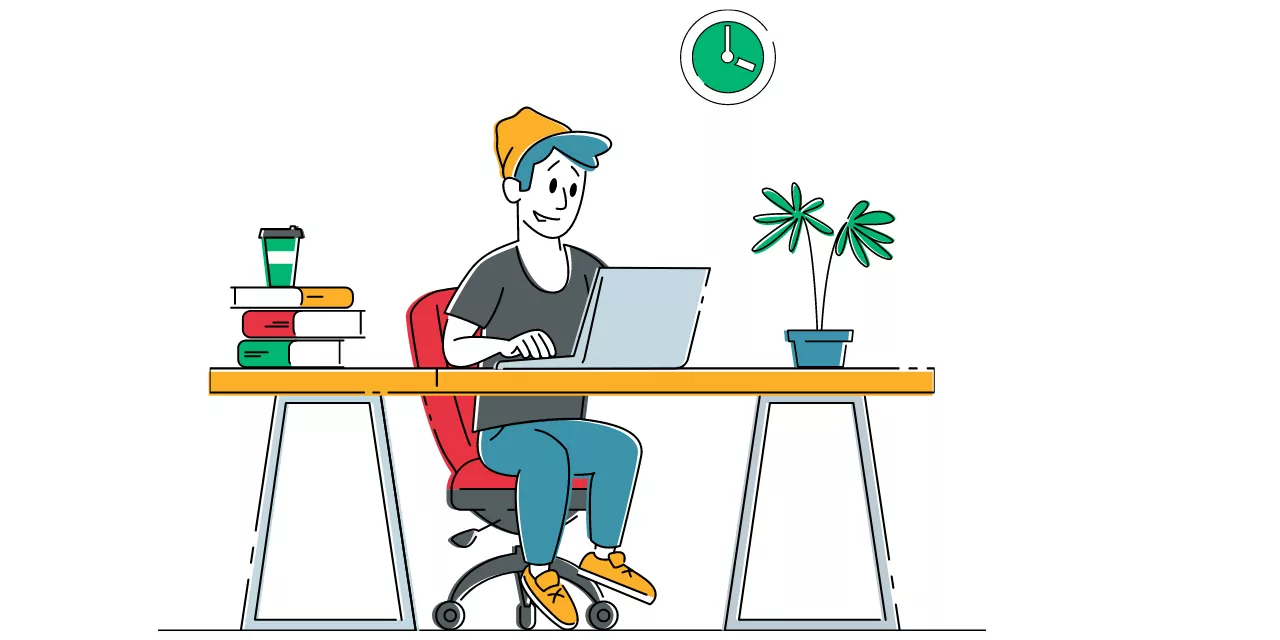
How to Make Money on Upwork: Ultimate Freelancing Guide
Upwork is one of the biggest platforms out there for freelancers who want to work remotely and build a steady income and earn money. Whether you’re a graphic designer, writer, developer, marketer, or consultant, Upwork connects you with clients from all over the world looking for your skills. But if you’re wondering how to actually make money on Upwork, and not just set up a profile and wait around, you’ve come to the right place.
In this guide, I’ll walk you through real, practical tips and strategies to help you get started, grow your freelance career, and succeed on Upwork.
Understanding Upwork and How It Works
Upwork is a freelance marketplace where individuals and companies hire freelancers for both short-term and long-term projects. The platform supports hourly and fixed-price contracts and includes built-in tools for time tracking, communication, and payment protection.
Types of Work Available on Upwork
Upwork features a wide range of job categories, such as:
-
Web, Mobile & Software Development
-
Design & Creative
-
Writing & Translation
-
Sales & Marketing
-
Admin Support
-
Customer Service
-
Finance & Consulting
You can find everything from one-time gigs to ongoing contracts, giving you the flexibility to build the freelance career that suits your goals.
How Freelancers Get Paid on Upwork
Upwork offers two main types of contracts:
-
Hourly Contracts: You track time using the Upwork Time Tracker, and you’re paid weekly based on hours worked.
-
Fixed-Price Contracts: You’re paid a pre-agreed amount when you hit project milestones or complete the job.
Upwork provides a secure payment system with a service fee structure that decreases the more you earn with a specific client.
Upwork makes it fast, simple, and cost effective to find, hire, work with. And pay the best professionals anywhere at any time.
Setting Up a High-Converting Upwork Profile
Your Upwork profile is your first impression, it’s essentially your online resume and portfolio rolled into one. A well-optimized profile significantly increases your chances of getting noticed by clients and invited to apply for jobs.
Crafting a Compelling Profile Overview
This section is where you “sell” yourself. Keep it client-focused by answering the question: What can you do for them?
- Start with a strong opening line that highlights your specialty and the value you bring.
- Focus on the problems you solve, not just the tasks you perform.
- Use plain, confident language that communicates your expertise without overselling.
For example:
“As a digital marketing strategist, I help businesses grow their online presence through data-driven campaigns that convert.”
Choosing the Right Job Title and Categories
Select a job title that accurately reflects your skillset and includes a keyword clients are likely to search. For instance, instead of just “Designer,” try “UX/UI Designer | Mobile & Web Apps.”
Choose only most relevant job categories and subcategories. Overreaching into unrelated niches can dilute your appeal to earn money on Upwork.
Uploading a Professional Profile Photo
Freelancers with profile pictures are far more likely to be hired. Use a high-quality picture with good lighting and a plain background. Dress professionally and make eye contact with the camera to build trust.
Highlighting Relevant Skills and Certifications
Upwork allows you to add up to 15 skills to your profile. Choose carefully, include a mix of your technical skills (e.g., SEO, JavaScript, data analysis) and soft skills (e.g., communication, project management).
If you have certifications or have taken relevant courses, add them to the “Certifications” section to boost credibility.
Building a Strong Portfolio
Even if you’re new to Upwork, you can showcase past work done outside the platform (with permission). If you’re just starting out, create a few sample projects that demonstrate your skills.
Include:
- A brief description of the project
- The tools or methods you used
- The outcome or impact
This helps potential clients understand your approach and the quality of your work.
How to Find the Right Jobs on Upwork
Once your profile looks good, the next step is to find jobs that actually fit what you’re good at and what you want to do. The trick is to be picky and smart about where you apply; go for jobs where you know you can really shine.
Use Filters to Make Your Search Easier
Upwork has filters that make it simple to narrow down your options:
- Pick the right category, like “Web Development” or “Content Writing.”
- Choose the experience level that fits you, whether you’re just starting out or you’re a pro.
- Look for clients with verified payments and a good track record.
- Filter by the budget and job type (hourly or fixed price) that works for you.
Tip: Save your search filters and turn on alerts so you don’t miss new jobs.
Read Job Posts Carefully
Before hitting “apply,” take a moment to really read the job details. Look for:
- Clear info about what the job involves.
- Reasonable deadlines and expectations.
- Specific instructions, sometimes clients include little tests to see if you’re paying attention.
- A budget that makes sense for the work.
If something feels off or underpaid, it’s okay to skip it. Sticking to good-quality jobs means better chances with reliable clients.
Get to Know the Client (and Spot Red Flags)
Upwork lets you peek at client info like:
- How often they actually hire people.
- What other freelancers say about working with them.
- How much money they’ve spent on similar projects.
Watch out for warning signs like vague job descriptions, bad reviews, or clients who micromanage too much. Trust your gut, working with the right clients makes freelancing way more enjoyable and successful.
Writing Proposals That Win Projects
Your proposal can make or break your chances of landing a job. Even if your profile is solid, sending out generic or rushed proposals won’t get you far. The secret? Writing thoughtful, targeted proposals that show you really get what the client needs.
Personalize Every Proposal
If you can, start by using the client’s name. Then, mention something specific from their job post to show you actually read it. This instantly builds trust and shows you’re detail-oriented.
For example:
“Hi Sarah, I saw you’re looking for a content writer experienced with technical topics. I’ve worked on similar projects in the SaaS space and would love to help.”
Avoid copy-pasting the same message to every job. Taking the time to customize your proposal can seriously boost your chances of hearing back.
Focus on the Client’s Needs First
Instead of jumping straight into talking about yourself, start by addressing the client’s problem and how you can solve it. Clients want to know:
-
You understand what they need
-
You’ve done something similar before
-
You can deliver great results efficiently
Keep your tone confident but not arrogant. Make it easy for them to see the value you bring.
Include Relevant Samples or Case Stories
Whenever you can, share links to your work or briefly describe similar projects you’ve completed.
For example:
“I recently wrote a 20-page white paper for a B2B cybersecurity client that helped them generate over 300 leads in the first month.”
If you’re just starting out and don’t have samples yet, create mock projects or link to any personal blogs, GitHub repos, or public work you’ve done.
Keep It Short and Sweet
Your proposal doesn’t need to be a novel; usually, 150 to 250 words is perfect. Use short paragraphs or bullet points to make it easy to scan.
Wrap it up by inviting the client to chat more:
“If this sounds like a good fit, I’d love to hear more about your goals and how I can help.”
Setting Your Rates and Getting Paid on Upwork
Figuring out how much to charge and handling your payments smoothly are super important if you want to make freelancing work long-term. Getting your pricing right helps you land jobs and build a good income.
How to Choose Rates That Feel Right
Your rate depends on your skills, experience, and what others are charging. Here’s a simple way to get started:
-
See what others are charging: Check out Upwork profiles similar to yours to get a sense of rates.
-
Start a bit lower if you’re new: No shame in starting small while you build reviews and a reputation.
-
Raise your rates as you get better: When you have solid feedback and more experience, bump up your price.
-
Charge more for tricky or specialized projects: If the job needs special skills or is more complex, it’s fair to ask for more.
Remember, your rate is about the value you bring, not just the time you spend.
Understanding Upwork’s Fees
Upwork takes a cut of your earnings, but the more you work with a client, the less they take:
-
20% for your first $500 with a client
-
10% for the amount between $500.01 and $10,000
-
5% once you go over $10,000
So the longer you stick with a client, the more money stays in your pocket.
Getting Paid and Withdrawing Your Earnings
Upwork lets you withdraw money through options like bank transfer, PayPal, or wire transfer, pick what’s easiest and cheapest for you.
For hourly jobs, you get paid weekly after the client reviews your work. For fixed-price jobs, the money is held in escrow and released when milestones are done or the project finishes.
Always be clear about payment terms from the start, and keep talking with your clients so there are no surprises.
How to Build Long-Term Client Relationships on Upwork
Landing one-off gigs is a great start, but if you want to thrive as a freelancer on Upwork, the real money magic is in building lasting relationships with your clients. Repeat work not only gives you a steady income stream but also saves you time constantly chasing new jobs.
Consistently Deliver Great Work
Clients come back to freelancers they can count on. That means hitting deadlines, keeping communication clear, and going above and beyond whenever you can.
-
Make sure you understand the project fully from the start, don’t be afraid to ask questions.
-
For longer projects, check in regularly with updates.
-
If you see a way to improve something, speak up! Clients appreciate proactive suggestions.
Communicate Clearly and Professionally
Strong communication builds trust. Reply to messages in a timely manner, be upfront about your schedule, and stay polite, especially if something tricky comes up.
Ask for Feedback and Reviews
Reviews help build your reputation and attract new clients. Once a project wraps up, don’t be shy about asking for feedback. A simple message like this works well:
“It was a pleasure working with you! If you’re happy with the results, I’d really appreciate a quick review on my profile.”
Reward Returning Clients
When a client comes back, it’s worth showing appreciation. Consider offering a small discount, bundling services, or giving them scheduling priority. These little perks can go a long way in keeping them around.
Keep an Eye on Your Job Success Score (JSS)
Your JSS is one of the first things clients notice, so keeping it high is key.
To maintain a strong score:
-
Avoid disputes and cancellations whenever possible.
-
Deliver quality work consistently.
-
Keep communication open so clients leave positive feedback.
Real Ways to Earn More on Upwork
If you’re serious about freelancing and making money on Upwork, it takes more than just landing jobs. The real key is working smart, building a great reputation, and positioning yourself for long-term success. Here are a few down-to-earth tips to help you boost your income on the platform.
Pick a Niche and Own It
Trying to be good at everything usually means you’ll get overlooked. Instead, focus on one area you’re really good at, whether it’s writing for tech companies, designing logos, or editing videos. The more specialized you are, the easier it is to attract clients who are willing to pay for expertise.
Write Better Proposals (Without Starting From Scratch Every Time)
Have a basic proposal template ready so you’re not writing from zero every time, but don’t just copy-paste. Always tweak your message to match the specific job. Mention something from the job post, show that you understand what the client needs, and explain how you can help.
Stay Professional and Easy to Work With
It’s simple: clients want to work with people who are dependable. Reply to messages quickly, be clear about your availability, and always deliver on time. If you treat every project with care, clients will remember, and often come back with more work.
Keep Learning New Things
The better your skills, the more you can charge. So keep learning, take a short course, try out a new tool, or stay up to date on what’s happening in your field. It doesn’t have to be a huge time investment, but little improvements can make a big difference.
Add Some Credibility to Your Profile
Upwork has free certifications and skill tests you can take. They won’t make or break your career, but they can add a bit of extra trust when a client is deciding between freelancers. If you have the chance, take the ones that fit your niche.
Use Your Time Wisely
You don’t need to hustle 24/7, but you do need to stay organized. Use a calendar, set reminders, and track your hours (especially for hourly jobs). The more efficiently you work, the more projects you can take on without burning out.
Set Goals and Adjust as You Go
Whether it’s hitting a monthly income target or working with a certain type of client, having goals helps you stay focused. Check in with yourself every few weeks: What’s working? What’s not? Use that insight to adjust your strategy and keep moving forward.
Read More: Unleashing the Writing Magic: My Journey as a Freelance Writer
Wrapping Up
Making a money on Upwork is definitely doable ,but like anything worthwhile, it takes some time and effort. The key is to focus on doing great work, finding the right clients, and building a solid reputation. If you put in the work to create a strong profile, apply to jobs that truly fit your skills, and write proposals that actually speak to what the client needs, you’ll start to see results.
More than just chasing projects, think long-term. Treat clients well, stay in touch, and aim to build real working relationships. That’s how you create steady income and avoid the constant hustle of finding new jobs.
Keep learning, stay consistent, and be patient. Upwork can absolutely become a reliable way to grow your freelance career and reach your financial goals, one step at a time.
FAQs: Making Money on Upwork
Q: How long does it take to get your first job on Upwork?
A: It really depends. Some freelancers land a job within a few days, while for others, it can take a few weeks. It mostly comes down to your niche, how strong your profile is, and how well you write your proposals. The more effort you put into those areas, the faster you’ll likely see results. Don’t get discouraged, it’s normal for it to take a little time at the beginning.
Q: Can beginners actually make money on Upwork?
A: Yes, definitely. Everyone starts somewhere, and plenty of top freelancers began with no experience. If you’re new, consider starting with smaller projects at lower rates just to build up your profile and get some good reviews. Focus on doing great work and giving your clients a smooth experience, and they’ll notice, and it pays off quickly.
Q: Does Upwork protect freelancers from not getting paid?
A: Yes, it does. For fixed-price projects, payments go into escrow, so clients fund the project before you start. For hourly work, Upwork’s time tracker logs your hours and protects your payments, as long as you follow the rules. It’s one of the reasons many freelancers stick with the platform.
Q: Should I choose hourly or fixed-price jobs?
A: There’s no one-size-fits-all answer. Hourly projects are great for ongoing work and steady income, while fixed-price jobs give you clear expectations upfront. Many freelancers use a mix, depending on the project. Just go with what works best for your schedule and work style.
Q: What should I do if there’s a problem with a client?
A: Try to sort it out directly first, calm, honest communication can fix a lot. But if things don’t improve, Upwork has a dispute resolution process you can use. It’s also a good idea to have everything clearly agreed on from the start to avoid misunderstandings down the road.
Q: How do I get clients to come back?
A: Be consistent. Deliver great work, meet your deadlines, and keep communication clear and friendly. Don’t be afraid to ask for feedback after a project wraps up, and if things went well, let the client know you’d love to work with them again. A small gesture, like offering a discount for future projects, can help keep that door open.


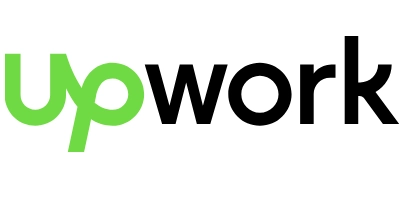
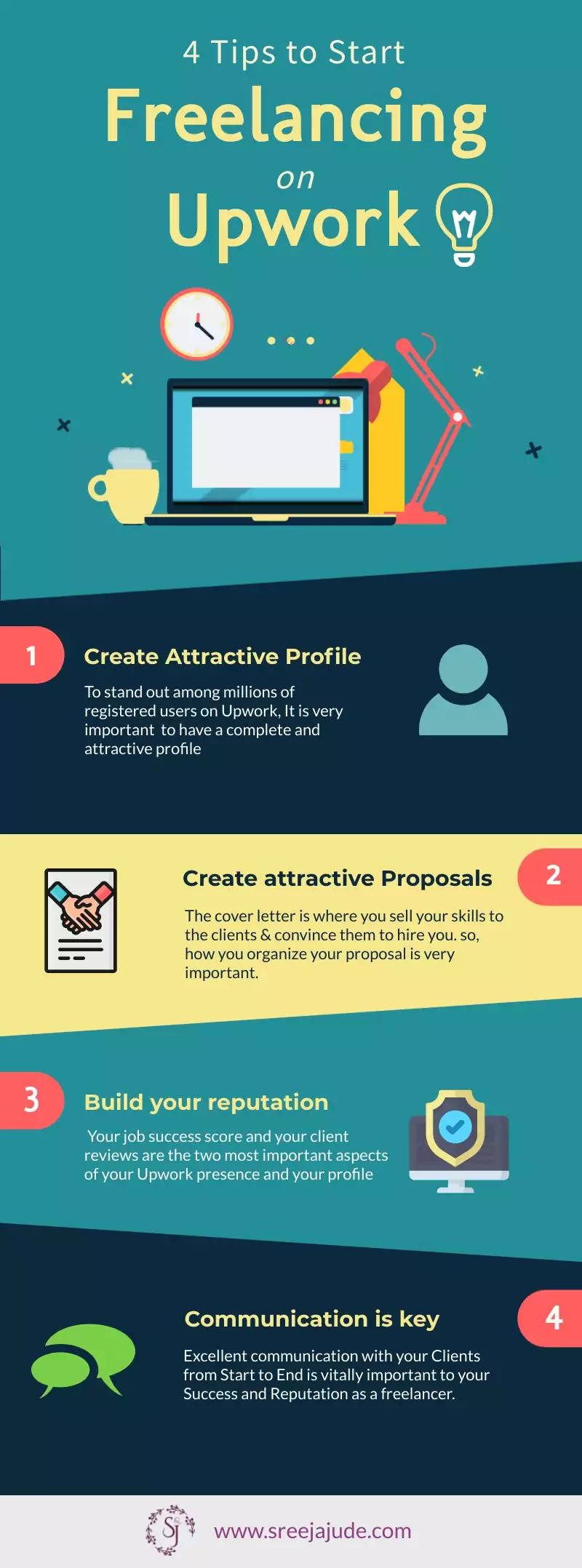
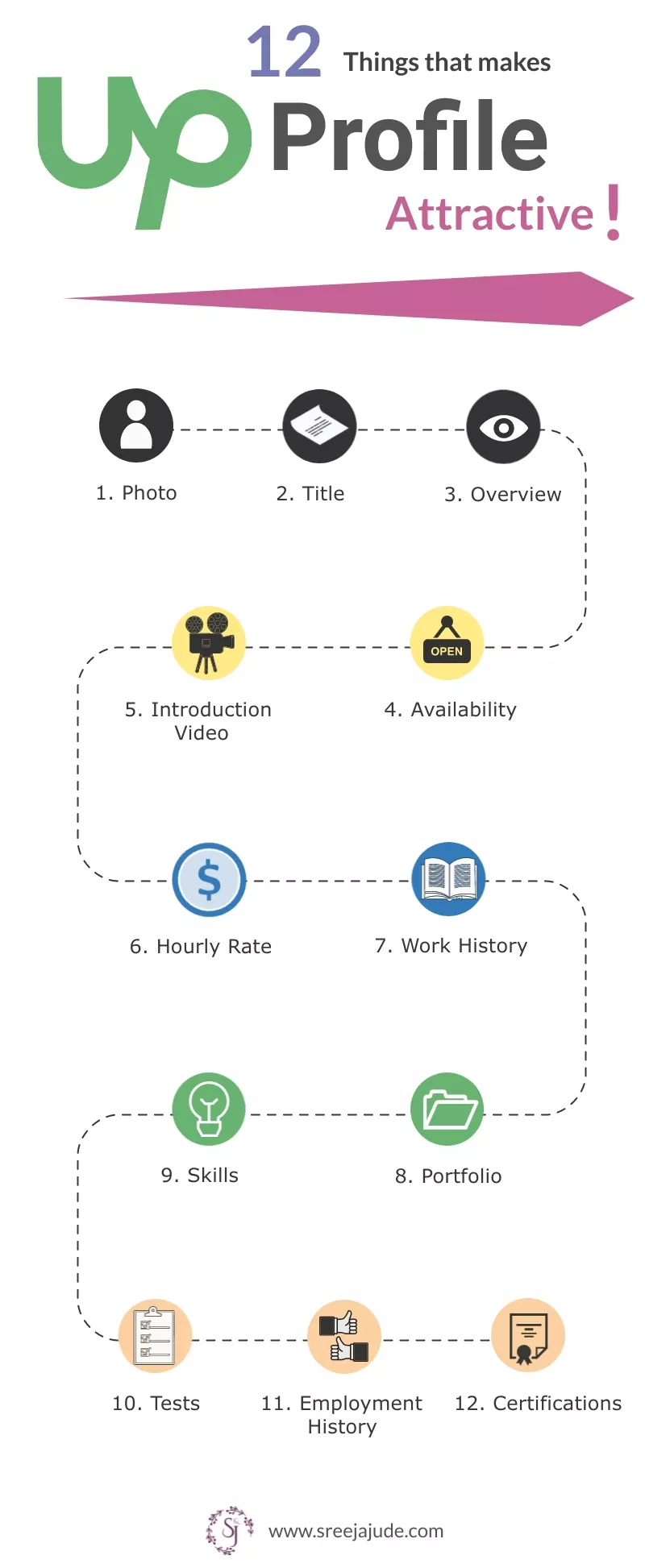
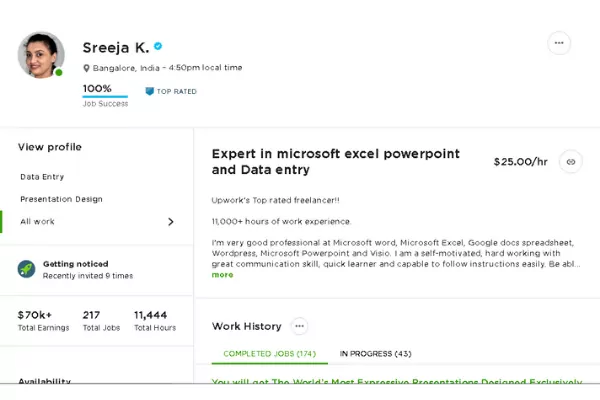
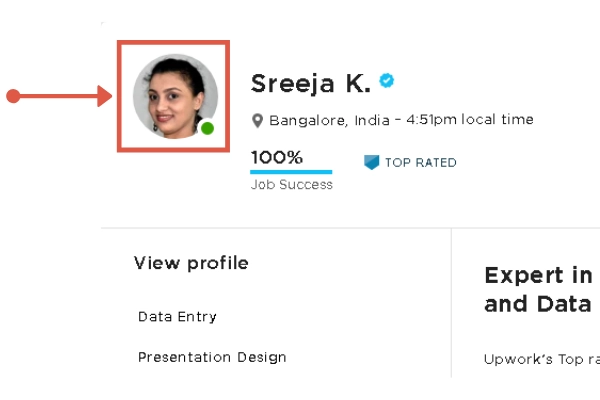
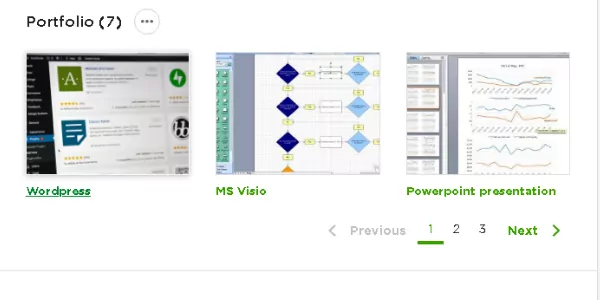
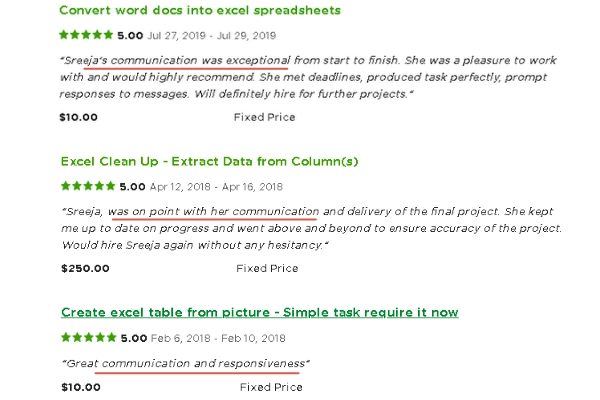
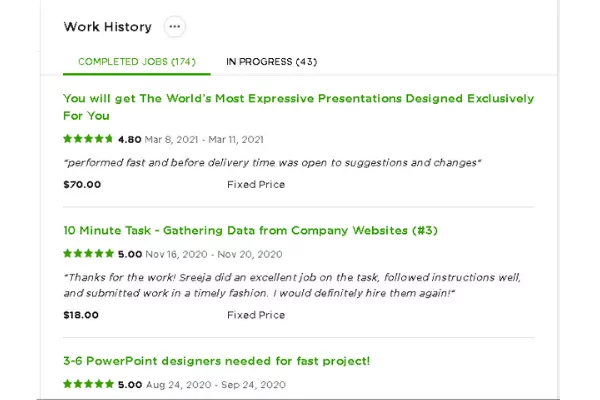
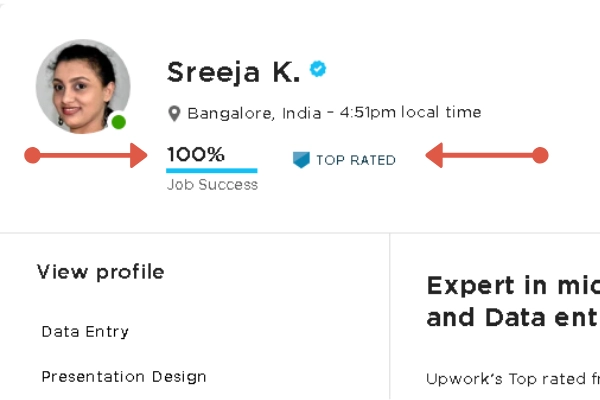
One Comment